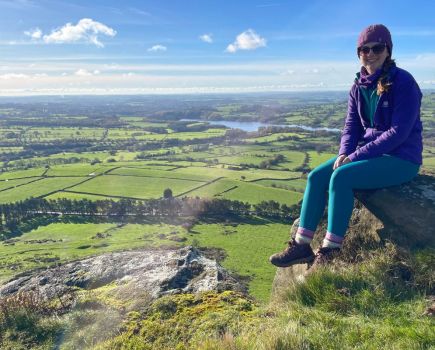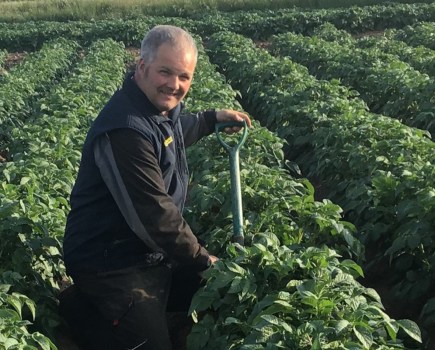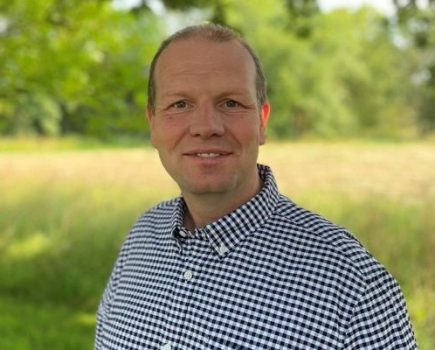 A few months ago a worldwide pandemic wasn’t on the radar, most of us were just waiting for it to stop raining. Then COVID-19 happened, life changed in a heartbeat and it stopped raining. Those of us with rural lives and outdoor space have had to make relatively small adjustments to life compared to city-dwellers and farming has carried on. Yet times such as these give us a new perspective and an opportunity to re-evaluate many things. Life-changing events tend to do that.
A few months ago a worldwide pandemic wasn’t on the radar, most of us were just waiting for it to stop raining. Then COVID-19 happened, life changed in a heartbeat and it stopped raining. Those of us with rural lives and outdoor space have had to make relatively small adjustments to life compared to city-dwellers and farming has carried on. Yet times such as these give us a new perspective and an opportunity to re-evaluate many things. Life-changing events tend to do that.
Watching the news has, for me, progressed from completely knocking me sideways as the magnitude of the situation sank in, to a grim acceptance of the new normal. But it also got me thinking about how journalists tell stories. The news is depressing, which may not be surprising given what’s going on in the world, but is it helped by the lens through which the media portrays life?
The thing that, for me, really brought the way things are reported into sharp focus was when the PM was discharged from hospital. The BBC headline read ‘Boris Johnson says it could have gone either way’, quoting his words from a video clip he’d posted on Twitter. Listening to this later, those weren’t the words that particularly struck me. Here was Boris speaking fluently – none of the stumbling and bumbling that normally marks his oratory – and his thanks and praise for the NHS was obviously from the heart, but it was his last sentence where, referring to the NHS, he said ‘it’s powered by love’. For me, those words were the headline, so same event but seen through a different lens.
That led me to look at how we report things in the agricultural media and the responsibility we have as journalists to be accurate. Words can be really powerful and some of the language often used is, like the government it seems, a combative rhetoric – battling the beetle; weapons in the armoury; the blight crusade. It’s a colourful way to describe some of the agronomic issues farming faces but are these really combative events in the first place?
Cabbage stem flea beetle is an example, it gets so much coverage because it’s undoubtedly a massive problem and its impact is forcing a change in rotations in large parts of the country. It’s tricky to write about oilseed rape without mentioning the beetle because it’s often affecting the way the crop is growing, which in turn means it influences every agronomy decision. Crops are being devastated and lost, but in some areas OSR is being grown successfully and still merits its position as the break crop offering the best gross margin. So are we at war with the beetle or trying to understand it better to find a way of restoring the balance between the pest and the crop? It’s a subtle difference but perhaps an important one. I’m a bit of a poet on the quiet so my inner bard loves a metaphor or a play on words, but I may just have to develop a whole new line of metaphors!
The past few weeks have also revealed weaknesses in the supply chain. Its lack of flexibility has meant dairies have had to pour milk down the drain, while the farmgate price for milk fell even though retail demand was rising as consumers sought to stock up fridges and freezers. At the same time beef from Poland and New Zealand lamb filled the supermarket shelves as quality British produce struggled to be diverted from the catering supply chain. It’s not just the UK where this has been an issue – US farmers have been experiencing the same scenario, if not worse because 50% of their food is consumed outside of the home.
For cereal growers, the malting barley market stalled as brewing temporarily ceased under coronavirus restrictions and wheat millers worked around the clock to help meet the increase in demand for small bags of flour for home-bakers. Potatoes have gone to waste as fast-food retailers and chip shops stopped frying. While the success of a supply chain infrastructure can’t be judged on its performance in a pandemic, it does raise questions on how it could have more flexibility to divert produce to where it’s needed, as well as how to protect the producer much better. Until we can sort out why UK-produced food has gone to waste, arguments for the importance of self-sufficiency in a crisis seem a bit irrelevant.
Based in Ludlow, Shrops, CPM technical editor Lucy de la Pasture has worked as an agronomist. @Lucy_delaP




